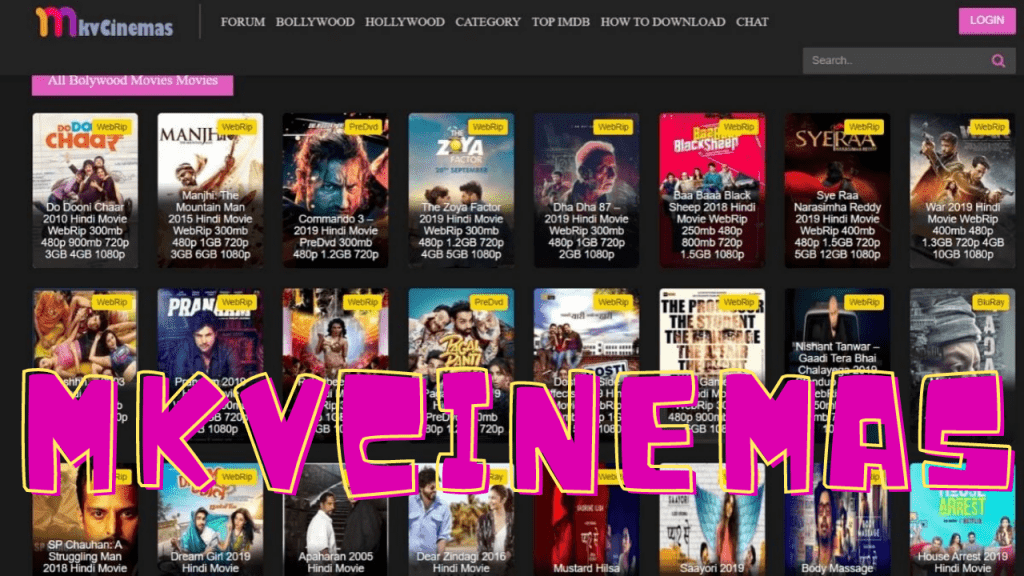In the ever-evolving world of digital media, the MKV movie cinema format has emerged as a popular choice for movie enthusiasts and casual viewers alike. With its ability to store high-quality video and audio tracks along with subtitles and metadata, MKV (Matroska Video) has become the go-to format for many. This article will delve into everything you need to know about MKV movie cinema including its features, benefits, and how to enjoy your favorite films in this format.
As streaming services proliferate, understanding file formats like MKV is essential for anyone looking to get the most out of their viewing experience. Whether you are a cinephile wanting to build a personal movie library or simply someone who enjoys watching films at home, knowing how to navigate the MKV landscape will enhance your enjoyment. In this comprehensive guide, we will cover various aspects of MKV movie cinema, from its technical specifications to how you can convert and play MKV files on different devices.
Join us as we explore the fascinating world of MKV movie cinema and discover why it has become a preferred choice for many movie lovers. By the end of this article, you'll be equipped with the knowledge to make informed decisions about your movie-watching experience.
Table of Contents
- What is MKV?
- Benefits of MKV Format
- How to Play MKV Files
- Converting MKV Files
- MKV vs Other Formats
- Best MKV Players
- Tips for MKV Movie Cinema
- Conclusion
What is MKV?
The MKV (Matroska Video) format is a versatile container format that can hold various types of multimedia content. It was developed in 2002 and has since gained popularity due to its flexibility and ability to support multiple video, audio, and subtitle tracks within a single file. Here are some key features of MKV:
- Supports multiple audio and video codecs.
- Can include subtitles in various languages.
- Allows for chapter markers and metadata.
- Open-source and free to use.
Technical Specs of MKV
MKV files can store high-definition video, making them ideal for movie cinema. The format supports various audio codecs like AAC, MP3, and DTS, ensuring high-quality sound. Subtitles can be embedded in formats like SRT or ASS, allowing for a seamless viewing experience.
Benefits of MKV Format
Choosing MKV for your movie cinema needs comes with a plethora of benefits:
- High Quality: MKV supports high-definition video and audio, ensuring a superior viewing experience.
- Versatility: It can contain multiple audio tracks and subtitles, catering to a broader audience.
- Compression: MKV files can maintain quality while being relatively small in size, making them easier to store and share.
- Compatibility: Many modern media players and devices support MKV, allowing for easy playback.
How to Play MKV Files
Playing MKV files is straightforward, but it may require specific software or hardware. Here are a few ways to play MKV files:
- Using Media Players: VLC Media Player, KMPlayer, and PotPlayer are popular choices that support MKV playback.
- Smart TVs: Many smart TVs offer native support for MKV files. Check your TV's specifications to confirm compatibility.
- Mobile Devices: Apps like MX Player and VLC are available on Android and iOS for playing MKV files on the go.
Converting MKV Files
If you encounter compatibility issues or need a different format, converting MKV files is an option. Here are some methods:
- Using Software: Tools like HandBrake and Any Video Converter can convert MKV files to formats like MP4 or AVI.
- Online Converters: Websites like CloudConvert and Zamzar allow you to upload and convert files without installing software.
MKV vs Other Formats
When deciding on a file format for movies, it’s essential to understand how MKV stacks up against others:
- MKV vs MP4: While both formats support high-quality video, MKV is more versatile with multiple audio and subtitle tracks.
- MKV vs AVI: AVI files tend to be larger, while MKV offers better compression without compromising quality.
- MKV vs MOV: MOV files are primarily used in Apple products, while MKV is more universal across platforms.
Best MKV Players
To enhance your MKV movie cinema experience, here are some of the best players available:
- VLC Media Player: A free and open-source player that supports a wide range of formats, including MKV.
- KMPlayer: A versatile player that provides excellent support for MKV and various codecs.
- PotPlayer: Known for its extensive customization options and support for high-quality video playback.
- Media Player Classic: A lightweight and straightforward player that supports MKV files efficiently.
Tips for MKV Movie Cinema
To make the most of your MKV movie cinema experience, consider these tips:
- Check Compatibility: Ensure your device can play MKV files smoothly to avoid playback issues.
- Organize Your Library: Use media management software to organize and catalog your MKV movie collection.
- Keep Software Updated: Always update your media players to the latest version for the best performance and security.
Conclusion
MKV movie cinema is an excellent option for those who value high-quality video and audio. With its versatility, support for multiple tracks, and open-source nature, MKV has solidified its place in the digital media landscape. Whether you're a casual viewer or a dedicated cinephile, understanding and utilizing the MKV format will enhance your movie-watching experience.
We encourage you to explore MKV movies and consider investing in a good media player to fully enjoy this format. If you found this article helpful, please leave a comment, share it with friends, or check out our other articles for more insights!
Thank you for reading, and we hope to see you back here for more exciting content!
Article Recommendations
- Tony Gonzalez Net Worth 2024 A Deep Dive
- Costco Thanksgiving Dinner 2024 Price
- Gabriel Iglesias Wife


